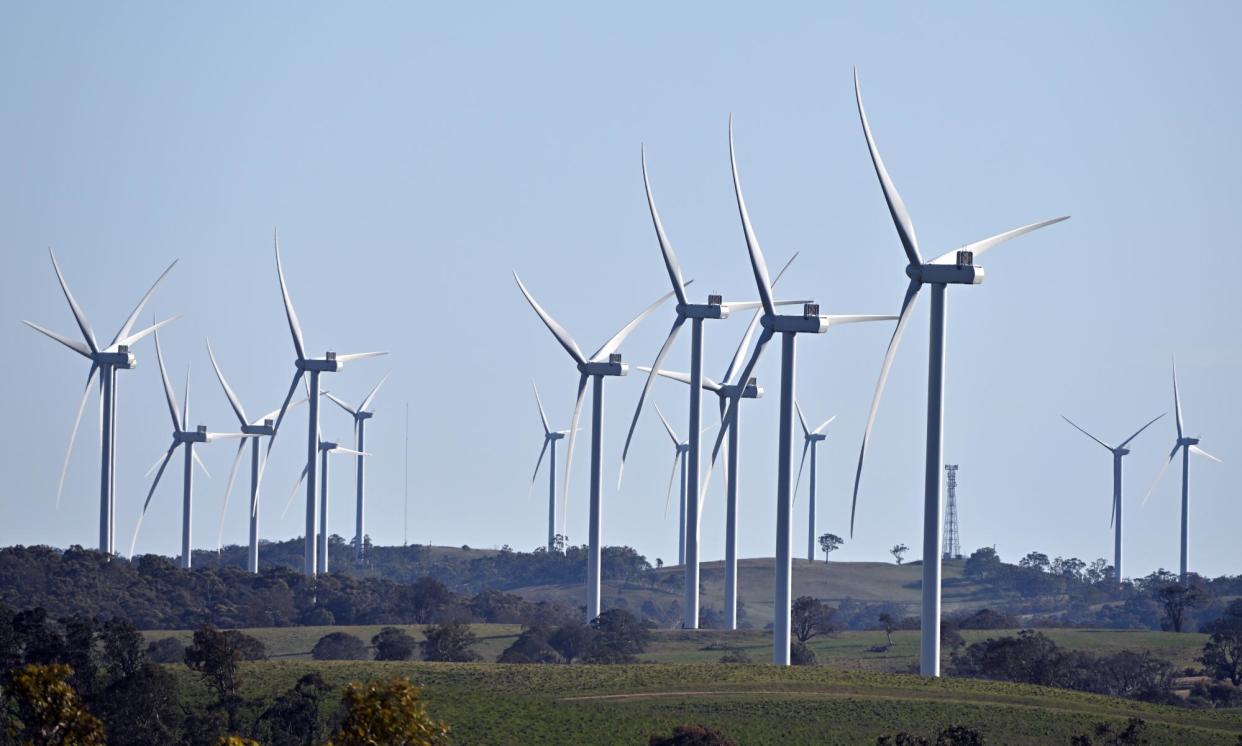Australia could reach an ambitious emissions cut of up to 75% by 2035, advisers tell Labor

Australia could meet an “ambitious” target to cut national greenhouse gases by at least 65% and up to 75% by 2035, according to an initial assessment by the Albanese government’s climate advisory body.
The Climate Change Authority has been commissioned to advise the government on a 2035 target and plans to cut emissions from electricity and energy, transport, industry and waste, agriculture and land, resources and buildings.
In an consultation paper released on Thursday, the authority nominated a 65-75% cut compared with 2005 levels based on an initial assessment of scientific, economic, technological and social evidence.
The chief executive, Brad Archer, said this target range “would be ambitious and could be achievable if additional action is taken by governments, business, investors and households”.
Labor is expected to announce its 2035 target before the next election. Some experts have questioned whether the country will meet its legislated 2030 target – a 43% cut – after a slowdown in the rollout of large-scale renewable energy, though government projections have suggested it is possible.
The authority’s preliminary proposal lines up with an agreement reached at the Cop28 climate summit in Dubai, which recognised that limiting global heating to 1.5C required “deep, rapid and sustained” cuts equivalent to a 67% reduction by 2035 compared with 2005 levels.
The Investor Group on Climate Change, representing members with more than $35tn in assets under management, endorsed the authority’s proposed range. The group’s policy director, Erwin Jackson, said it was “very positive” that the authority was “focused on a 2035 target that is aligned with limiting warming to 1.5C and also with the highest possible level of ambition”.
He said a target of less than 65% would not be seen as credible by the international community.
“Investors globally will be looking closely at Australia’s target to see that it is serious about achieving what it has said it wants to achieve, which is to align with 1.5C,” he said. “Investors are looking to all governments to commit to targets along these lines because a volatile climate means a volatile economy.”
Related: What’s really happening with emissions and the climate crisis in Australia
Australia’s three biggest states, New South Wales, Victoria and Queensland, have each already set a 2035 target of at least 70% cut. But Western Australia is a likely drag on the national commitment, having significantly increased its carbon pollution as it backs ongoing expansion of its emissions-intensive gas export industry.
The climate change and energy director at the Australian Industry Group, Tennant Reed, said it had been clear for a while that any logical analysis would lead to Australia adopting a 2035 target in the authority’s proposed range.
He said the scale of the cuts needed were likely to “take some people aback”, but it was “hard to escape numbers in that range if you’re looking at the physics, at the states’ [commitments] or the diplomacy”.
Australia’s emissions are 25% below 2005 levels, according to the government. Reed said reaching a 65-75% reduction target by 2035 would require an acceleration in the short-term, building on existing federal and state policies and could not be met just by ramping up cuts next decade.
A spokesperson for Bowen said Australia was within striking distance of its 2030 emissions goal and had policies to boost reliable renewable energy, increase access to cleaner cars and reduce industrial emissions. They said the authority was consulting with the community and would not make a recommendation until later this year.
In a speech on Thursday, the prime minister, Anthony Albanese, again signalled next month’s budget would include a green industry policy to help the country compete in a global race for clean investment.


